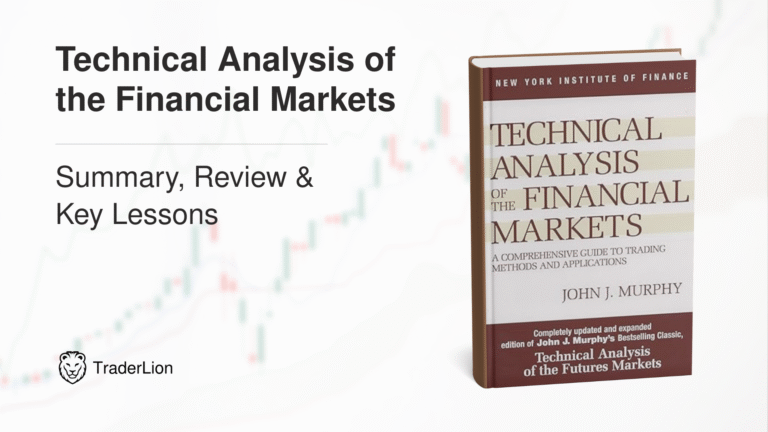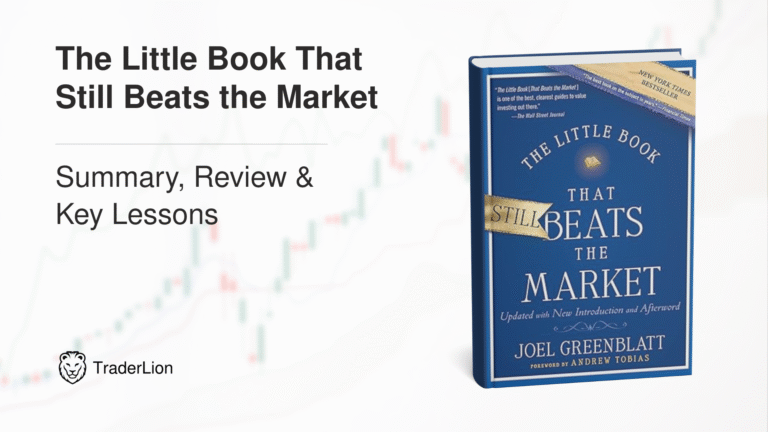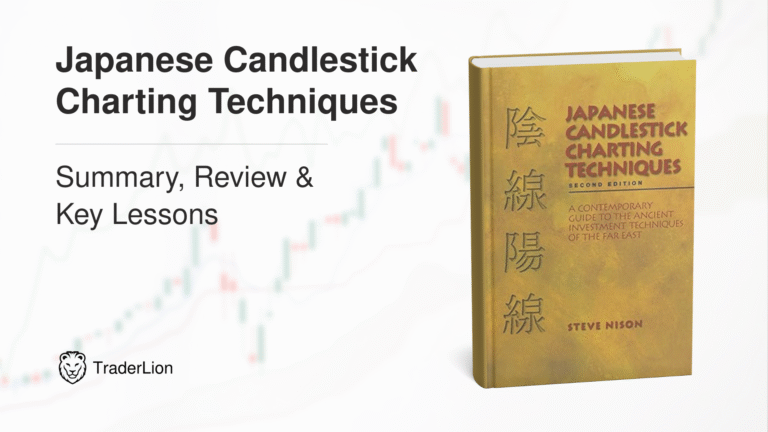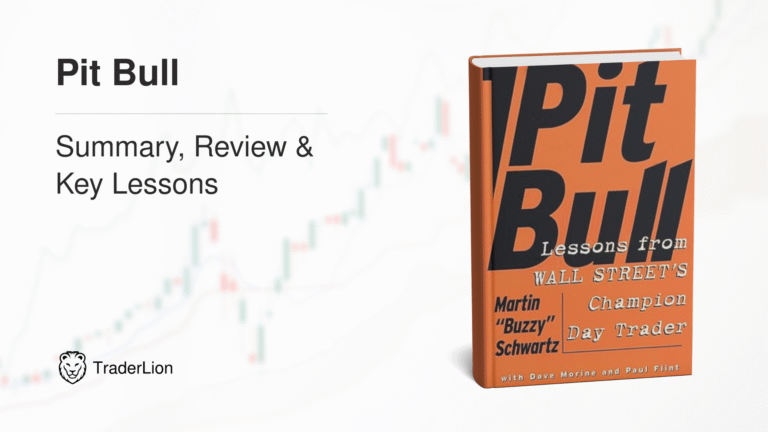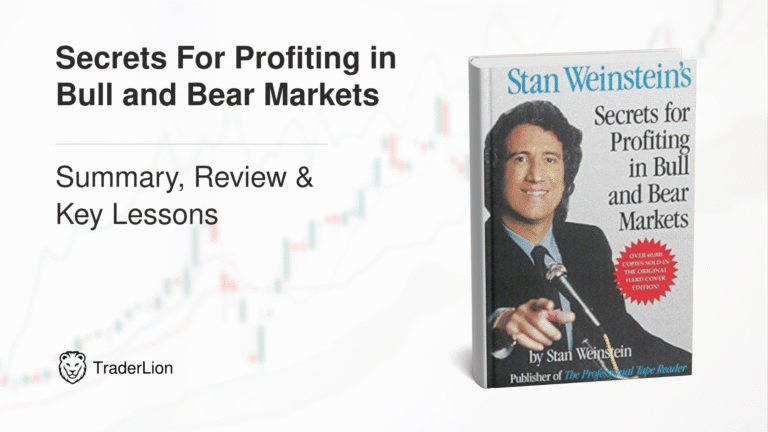
Stan Weinstein’s Secrets for Profiting in Bull and Bear Markets Summary, Review & Key Lessons for Traders
Published: August 28, 2025
Most traders don’t fail because of bad ideas — they fail because they have no framework. Entries feel random. Exits get emotional. Risk management is reactive. And without structure, even a decent trade idea turns into an expensive lesson. Stan Weinstein’s book lays out a structured, stage-based approach that removes the guesswork and gives you a real edge. This isn’t another vague trading theory guide. It’s a blueprint for consistently catching big moves and avoiding blowups — whether the market’s ripping higher or unraveling fast.
What makes this book stand out is that it directly addresses one of the biggest gaps for developing traders: timing. Knowing what to buy is only half the game. Knowing when to buy and when to sell is what separates break-even traders from consistent winners. Weinstein’s stage analysis model puts timing front and center. If you’ve ever bought a “hot” stock only to get chopped up in a sideways mess or watched a winner round-trip because you had no sell rules, this book is going to hit home. It’s packed with principles you can use immediately, regardless of your market or style.
Quick Facts About Secrets for Profiting in Bull and Bear Markets
Who Is Stan Weinstein and Why Listen?
Stan Weinstein was not just another newsletter writer. He ran The Professional Tape Reader, one of the most widely followed market letters of the 1980s, with a strong track record for calling major market turns. His institutional clients weren’t casual traders — they were serious professionals who relied on his stage-based system to manage millions.
Weinstein’s credibility doesn’t come from theory; it comes from results. He consistently identified major bull and bear markets before the crowd. He used technical tools, yes, but what made his approach unique was how he applied them — with structure, timing, and simplicity. His Stage Analysis framework wasn’t built in a vacuum. It evolved through years of real-world application in both rising and falling markets, across asset classes.
This isn’t just another chartist spouting off MACD setups. Weinstein’s work was rooted in observing the psychology of institutions — how they accumulate, distribute, and dump positions. He understood market mechanics before “smart money” tracking was a buzzword. That’s why traders still study his work decades later.
What is Stan Weinstein’s Secrets for Profiting in Bull and Bear Markets About?
This book lays out a complete system for market timing using stage-based technical analysis. It’s not about prediction — it’s about recognizing where the market or a stock is within its life cycle and aligning your actions accordingly.
Weinstein splits market behavior into four distinct stages: basing, advancing, topping, and declining. He teaches how to identify these stages using price, volume, and relative strength, then how to time entries, manage risk, and exit without regret.
Beyond the stages, Weinstein breaks down position sizing, stop-loss placement, sector rotation, and how to short sell correctly — all in practical, real-world terms.
Stan Weinstein’s Secrets for Profiting in Bull and Bear Markets Chapters at a Glance
Why Stan Weinstein’s Secrets for Profiting in Bull and Bear Markets is a Must-Read
Weinstein provides more than just a method. He offers a way to think about the market that adapts across cycles. The Stage Analysis framework alone — breaking trends into four psychological phases — is worth the price of the book. It gives traders a simple but powerful filter to decide what to trade and when. It’s applicable across sectors, timeframes, and even asset classes.
The selling chapters stand out. Most books skimp on exit strategy. Weinstein doesn’t. He gives blunt rules for protecting profits and cutting losses, along with examples. The book also covers short selling — an often ignored but crucial tool during bear phases. He outlines specific setups for identifying short opportunities with the same structure used for longs.
It’s also rare to find a book this readable yet actionable. The charts are well-labeled. Concepts are reinforced with quizzes and real-world examples. There’s no fluff. Just clear teaching that respects the reader’s time and experience level.
Top Lessons to Apply to Your Trading
1. Use Stage Analysis to Align with the Market’s Trend
Weinstein’s four-stage model — basing, advancing, topping, and declining — simplifies market behavior. Most traders fail by trying to buy too early or hold too long. Stage Analysis gives a clean way to evaluate whether a stock is worth buying, shorting, or avoiding entirely. It also keeps you out of dangerous chop zones where many accounts get shredded. Aligning trades with Stage 2 (advancing) and avoiding Stage 3-4 traps is foundational.
2. Relative Strength Is a Filter, Not a Confirmation
Weinstein teaches that relative strength isn’t a lagging signal — it’s a filter for trade selection. A breakout in a stock with poor RS is suspect. A breakout in a top-ranked RS name is actionable. This shifts the way traders evaluate setups. Relative strength isn’t just for momentum traders. It’s a real-time clue about institutional interest and future potential.
3. Volume Confirms or Rejects the Story
Price alone is never enough. Volume tells you who’s in the trade. Breakouts without volume? Ignore them. Pullbacks on low volume? Healthy. Weinstein drills this in repeatedly. Volume spikes in the right context give trades teeth. It’s not just about spotting high volume — it’s about reading what it means given the market stage and setup.
4. Don’t Just Learn When to Buy — Learn When to Sell
Weinstein’s selling framework is brutally practical. From sell-stops to top formations to profit-taking rules, he covers it all. The difference between traders who make a little and those who scale accounts? Exit discipline. Weinstein forces readers to get serious about protecting capital and locking in gains. No more holding and hoping.
To master this setup, check out our Stan Weinstein Stage Analysis Masterclass.
Common Mistakes Stan Weinstein’s Secrets for Profiting in Bull and Bear Markets Helps You Avoid
1. Buying During Stage 3 (Topping Phases)
Chasing strength late in a move is a fast path to drawdowns. Weinstein teaches traders to recognize when a stock has likely peaked. Stage 3 is marked by weakening volume, sideways price action, and failed breakouts. If you’re entering during this stage, you’re likely someone else’s exit liquidity.
2. Ignoring Volume Clues During Breakouts
Not all breakouts are equal. Many traders buy a price breakout without checking volume — a critical error. Weinstein shows that volume must expand on breakouts and contract on pullbacks. Otherwise, the move lacks commitment from institutions and is likely to fail.
3. Holding Too Long Into Stage 4 Declines
Weinstein warns against the deadly habit of holding through Stage 4 — where price breaks support and starts a new downtrend. Many traders rationalize these moves using fundamentals. He breaks that mental trap and shows how to identify early breakdowns so you can cut losses fast or profit on the short side.
Best Quotes from Stan Weinstein’s Secrets for Profiting in Bull and Bear Markets
“The tape tells all.”
This mantra sums up Weinstein’s philosophy. Forget the narratives. Ignore the headlines. Price and volume are the truth. If you align with the tape — not your opinion — you’ll stay on the right side of the market. Too many traders try to outthink the tape. This quote reminds you to listen instead.
“Don’t be a fundamentalist one week and a technician the next.”
Consistency matters. Switching strategies mid-trade or mid-market cycle ruins edge. Weinstein stresses discipline — find a method that works and stick to it. This quote hits home for traders who chase strategies without fully committing to a framework.
“Stage analysis will keep you on the right side of the market.”
Most traders lose money not because they lack picks, but because they fight the trend. This quote reinforces that trend alignment is half the battle. Stage Analysis gives a structured way to ensure you’re swimming with — not against — the current.
Who Should Read Stan Weinstein’s Secrets for Profiting in Bull and Bear Markets
This book is tailor-made for swing and position traders who want structure and repeatability. If you’ve been relying on gut feel, scattered indicators, or fundamentals alone — this book gives you a system that actually aligns with how markets move. The clarity Weinstein brings to timing and risk control makes it ideal for technical traders aiming to sharpen execution.
Newer traders will benefit from the logical structure. It removes noise and sets a clear roadmap for entries, exits, and risk control. It also suits intermediate traders who are profitable but inconsistent — those who need better tools to avoid giving back gains or missing high-probability entries.
It’s not for day traders or scalpers. This isn’t about 5-minute charts or intraday signals. It also won’t help those looking for macroeconomic forecasts or value investing models. If your edge is deeply fundamental or your timeframe is intraday, this book won’t align with your needs.
Final Thoughts on Stan Weinstein’s Secrets for Profiting in Bull and Bear Markets
If your trades feel random or your exits lack structure, this book is the fix. It gives you a systematic framework for trading with discipline across any market cycle. Weinstein’s Stage Analysis model removes ambiguity. No more asking, “Is this a good time to buy?” You’ll have a process that answers that for you.
The tactical insight here is to stop forecasting and start reacting. Weinstein’s tools are reactive — in the best way. You don’t need to predict a bottom. You wait for Stage 1 to turn into Stage 2, confirm with volume and RS, then act. It’s trading with odds, not hope.
TraderLion Verdict: Required reading. It teaches timeless principles in a clear, practical format. Whether you’re just starting or sharpening your edge, this book will improve your ability to read charts, time entries, and protect profits. No fluff. Just real tools that work.






